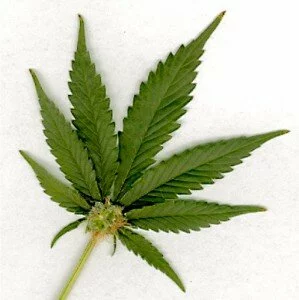There are four ways for a prosecutor in Michigan to prove that you were drunk driving or “OWI” (operating while intoxicated). Two of them involve alcohol (OUIL/UBAL) and two of them involve drugs (OUID/OWPD).
To show that a person was OWI due to OWPD (operating with presence of drugs), a prosecutor must only show that certain “schedule 1” drugs were present, in any amount, in the driver’s blood. Because the prosecutor need not show that these drugs caused intoxication or impairment, these schedule 1 drugs are thought of as “zero tolerance” drugs.
Schedule 1 includes “marijuana,” which is defined by Michigan law as:
(3) “Marihuana” means all parts of the plant Canabis sativa L., growing or not; the seeds thereof; the resin extracted from any part of the plant; and every compound, manufacture, salt, derivative, mixture, or preparation of the plant or its seeds or resin. It does not include the mature stalks of the plant, fiber produced from the stalks, oil or cake made from the seeds of the plant, any other compound, manufacture, salt, derivative, mixture, or preparation of the mature stalks, except the resin extracted there from, fiber, oil or cake, or the sterilized seed of the plant which is incapable of germination.
Of course when determining if someone has used marijuana before driving the police don’t look for the marijuana itself, but instead, have the blood inspected for evidence that marijuana has been used. The active ingredient in marijuana is THC. As THC breaks down inside the body, 11-carboxy-THC is produced.
In the Michigan case of People v. Derror, the defendant was found guilty of OWI causing death based only on the presence of 11-carboxy-THC. The issue in this case was whether or not 11-carboxy-THC was a “derivative” of marijuana. The Derror case involved two companion cases, and in both cases, blood tests only revealed the presence of the metabolite 11-carboxy-THC. The active and impairing THC was not found in either of the driver’s blood samples.
The Derror court ruled that 11-carboxy-THC was actually a derivative rather than just a metabolite of marijuana, and based this decision in part on expert testimony by a state witness and in part on an online medical dictionary, which indicated that a derivative is that “which is produced by modification of something preexisting.” The court further found that one may be convicted of drunken driving causing death based only on the presence of this derivative.
The Michigan Supreme Court, in People v. Feezel, No. 138031 (June 9, 2010) has ruled that 11-carboxy-THC is not a derivative of marijuana, and in so doing, has completely overruled People v. Derror, 475 Mich 316, 715 NW2d 822 (2006).
Feezel looked at several factors including:
- Strict Interpretation – The fact that schedule 1 does include the word “derivative” but does not include the word “metabolite.”
- Effect on Existing Law – Other criminal statutes do specifically include the word “metabolite,” and legislatures are presumed to know and to have considered the effect on all existing laws when enacting new legislation.
- Federal Law – The Michigan definition of marijuana is identical to that contained in federal statutes, and that by failing to construe the applicable portions of the Public Health Code to achieve consistency with federal law, and by failing to examine the statute in light of other relevant statutory provisions, the Derror majority failed to effectuate the Legislature’s intent.
- The Michigan Medical Marihuana Act – Under the majority’s interpretation of the statute in Derror, however, individuals who use marijuana for medicinal purposes will be prohibited from driving long after the person is no longer impaired. Indeed, in this case, experts testified that, on average, the metabolite could remain in a person’s blood for 18 hours and in a person’s urine for up to 4 weeks.
Feezel has reversed Derror, and in doing so, has removed 11-carboxy-THC from the list of “drugs” that can be considered zero tolerance. In some small way therefore Michigan’s zero tolerance law has become slightly more tolerant to marijuana. Thus, while still a zero tolerance drug; this Feezel decision also has the effect of making the defense of those accused of OWI based on marijuana more feasible than previously thought.
Get a FREE confidential CASE EVALUATION on your Michigan OWI/OWVI/DUI by calling (248) 306-9159, or filling out this consultation request form. Call now, there’s no obligation!
- 1 comment
- Breath and Blood Testing, Drunk Driving Attorneys Page, Drunk Driving in the News
- June 11, 2010
- Posted by baronedefensefirm
PingBack/TrackBack
- marijuana blood test admissible in court?

Add comment